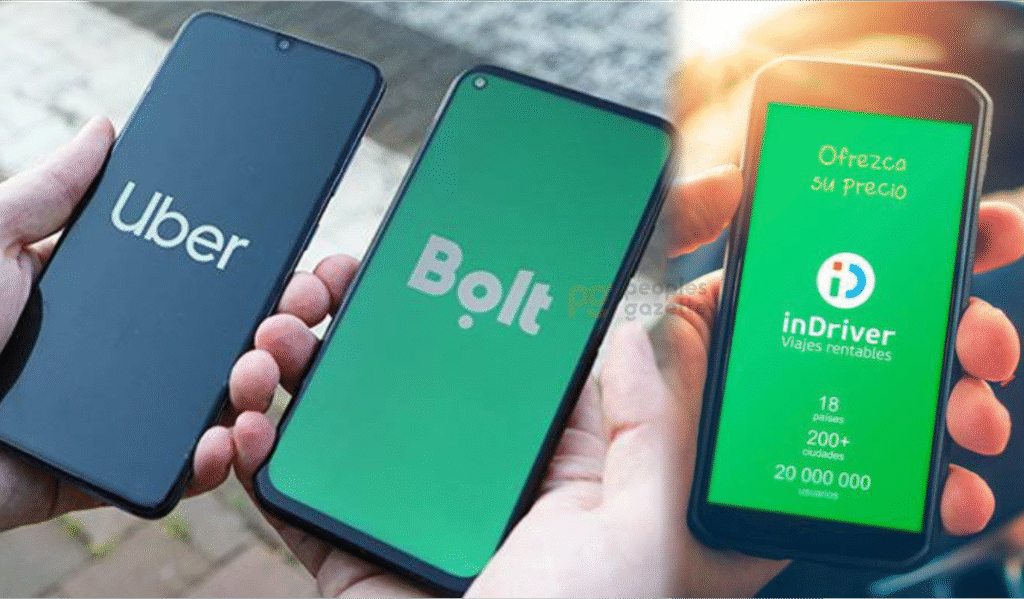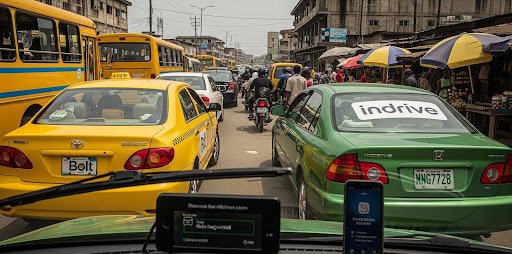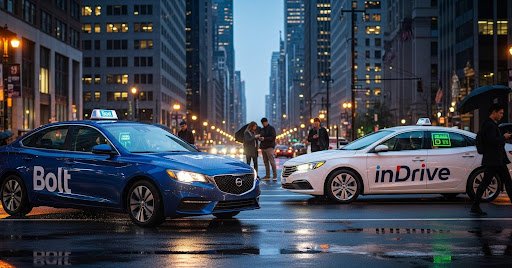Bolt has officially taken the crown in Nigeria’s mobility market, beating global rivals Uber and inDrive to become the most downloaded travel app in the country. This development, confirmed by fresh data from Sensor Tower, marks a turning point in the ride-hailing race and highlights how Bolt has steadily won the trust of Nigerian commuters.
Table of Contents

How Bolt Climbed to the Top
When Bolt entered Nigeria in 2016 under the name “Taxify,” few expected the platform to dominate a space that Uber had already pioneered. But nine years later, the tables have turned. Bolt is now available in 33 Nigerian cities—far beyond Lagos and Abuja—giving it a reach that no other competitor has matched.
Globally, the company has more than 200 million users across 50 countries, but Nigeria remains one of its most important markets. Its rise is tied to how well it has adapted to the realities of Nigerian transport: unreliable public transit, high fuel costs, and a population eager for digital convenience.
The Sensor Tower ranking makes it clear: Bolt leads Nigeria’s travel and mobility app downloads, outpacing Uber, which once dominated, and inDrive, the challenger that tried to disrupt with its “negotiate your fare” model.

Why Nigerians are Choosing Bolt
Several factors explain why Bolt has overtaken its rivals.
- Pricing that fits Nigerian pockets
In a country where inflation and fuel prices bite hard, affordability is everything. Bolt has managed to keep its fares more competitive than Uber’s, making it attractive to everyday commuters. - Expansion beyond big cities
Unlike Uber, which is still concentrated in a few major cities, Bolt has moved aggressively into secondary cities such as Uyo, Akure, and Makurdi. By serving people outside Lagos and Abuja, the company has tapped into new demand. - Product innovation
In August, Bolt introduced Family Profile in Nigeria, allowing one account holder to pay for and manage rides for up to nine people. For parents, caregivers, and even businesses, this is a game-changer. - Reliability and safety
Bolt has invested in features like in-app emergency buttons, driver verification, and route tracking. Nigerians, particularly women, have been vocal about safety concerns in ride-hailing, and Bolt’s efforts here have strengthened trust.
Osi Oguah, Bolt’s country manager for Nigeria, acknowledged the milestone, saying the company is proud to be the most downloaded travel app but stressed there is still “room to grow further and faster.”
What This Means for Uber, inDrive, and the Industry
Bolt’s dominance in Nigeria sends a strong message to its competitors. Uber, once the clear leader, now faces the task of regaining relevance in a market that prizes affordability. inDrive, while innovative with its fare negotiation model, has not been able to scale in smaller cities as quickly as Bolt.
The broader implications for Nigeria’s mobility sector are clear:
- More competition benefits riders — Users can expect more affordable prices, better services, and new features as platforms battle for loyalty.
- Localisation is key — Companies that design solutions around Nigerian realities (high inflation, patchy internet, and diverse urbanisation) will have an edge.
- Policy will matter — With ride-hailing expanding to smaller cities, regulators must consider safety standards, taxation, and the role of these services in reducing transport gaps.
For now, Bolt holds the advantage. But in a dynamic market like Nigeria, leadership is never permanent. Uber and inDrive could still mount a comeback with stronger localisation, better incentives for drivers, or partnerships that reduce costs.

The Future of Mobility in Nigeria
Nigeria’s ride-hailing story is only beginning. With over 220 million people, a youthful population, and limited public transport infrastructure, the demand for convenient, tech-enabled transport will keep growing.
Bolt’s achievement of surpassing Uber and inDrive is significant, but the company cannot rest. Challenges such as fuel subsidy removal, rising inflation, and driver dissatisfaction could quickly shift the balance if not addressed.
Still, Bolt’s ability to adapt to Nigerian realities gives it a head start. Its growth into smaller cities shows it is betting on long-term demand, while features like Family Profile demonstrate attention to cultural and practical needs.
For everyday Nigerians, the competition means one thing: better options for moving around. Whether Bolt, Uber, or inDrive comes out on top in the next phase, the real winners will be commuters who can now access safer, cheaper, and more reliable mobility.
Join Our Social Media Channels:
WhatsApp: NaijaEyes
Facebook: NaijaEyes
Twitter: NaijaEyes
Instagram: NaijaEyes
TikTok: NaijaEyes




